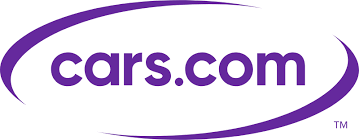Marketing
March 24, 2021
The Fundamentals of Paid Search: 6 Tips to Maximize Your Spend
With the right tools in place, we find dealers can confidently reduce their paid search spend by upwards of 40% in some cases.

Paid search is a critical component in a marketer's toolbox. Most dealers spend a significant portion of their budget on paid search campaigns. With the right tools in place, we find dealers can confidently reduce their paid search spend by upwards of 40% in some cases.As we have listened to our clients, we noticed that the ones with the most successful paid search campaigns live by certain habits and processes. These common principles demand a strong relationship with your digital agency. This fundamental relationship hinges on solid communication and remembering that you and your agency want the same thing: to be successful. What is good for your dealership, is good for your agency. Keeping that mutual synergy in mind, below are our 5 Fundamental Tips and 1 Bonus, Pro Tip for getting the most from your paid search campaigns.'
- Inspect what you expect and own your own data. When working with your vendor, know what metrics matter most to you and your dealership. We all know that each rooftop is different so while your agency may be accustomed to reporting in a certain Google Analytics (GA) view, make sure it's one that you choose, that makes sense for you and your dealership (not the view that makes your vendors look best).' The simple act of aligning your GA view to fit/reflect your KPIs/metrics holds your agency accountable for both the positive results and the ones that fail to meet the mark. If your agency only shows you positive results and hides those that are less than stellar, how do you optimize and improve? As the saying goes, 'knowing is the first step,' so make sure your agency is showing you the full picture so that you can adjust your spend accordingly. Owning your own data means owning your Google Analytics and Google Ads account (whenever humanly possible). If you don't own your Google Ads account, be sure your agency allows you to view it AND link it directly to your Google Analytics account (and your specified view).'
- Confirm your audience geo. Make sure you know where your clicks come from and that you aren't paying for clicks outside your market. While this is basic advice, you'd be surprised by how frequently this still happens today!'
- Review your goals and conversions. You need to set these up properly (see #1).' At a minimum, you should have conversion goals for the following: calls, forms, and chats.'
- Include your paid search strategist. Make sure that your paid search strategist is on every call - not just your main representative. Your strategist is the one who directly works on your campaigns, adjusting bids, ad copy, ad extensions, and making allocation adjustments. In order to ensure nothing 'gets lost in translation' between your account representative and your strategist, your strategist should be part of all your meetings.''
- Review your ads and ad copy. This seems like a no-brainer, but people get busy and forget to check in on this pivotal part of paid search success. Offers often change monthly and your brand is of prime importance. Take the time to make the most of your ads. Check in to make sure the ads and ad copy are up-to-date.'
- PRO TIP - Add a new KPI to your campaigns: Cost per sale. Just because you have a low CPC and high impression share, does not mean those activities influenced sales. To measure sales performance, you will need to add an additional tool to your marketing toolbox.
Utilize a sales attribution partner to verify if your customers are actually influenced by your paid search campaign. (Unfortunately, you can't do this with Google Analytics.)' If the sales are indeed influenced by paid search, consider specifically how many sales can be attributed to the campaign. This will in turn enable you to calculate your Cost Per Sale for paid search and benchmark performance against your other paid marketing campaigns.
Example:' Spent $5000 with Vendor/15 Attributed Sales = $333 Cost Per Sale
Part of a complete sales attribution partnership is uncovering which campaigns and keywords actually influenced the sale of a car. Experiment and work to optimize your SEM buy to focus on those campaigns and keywords that actually closed the deal.'








